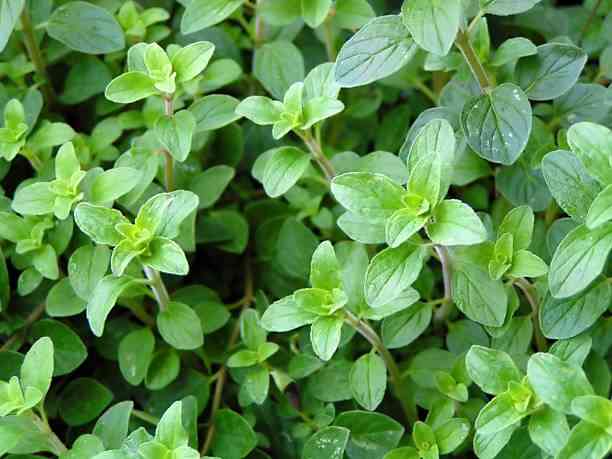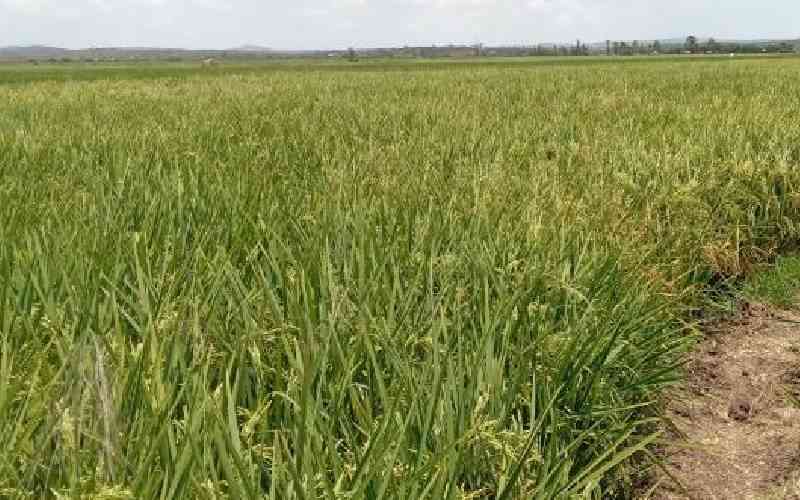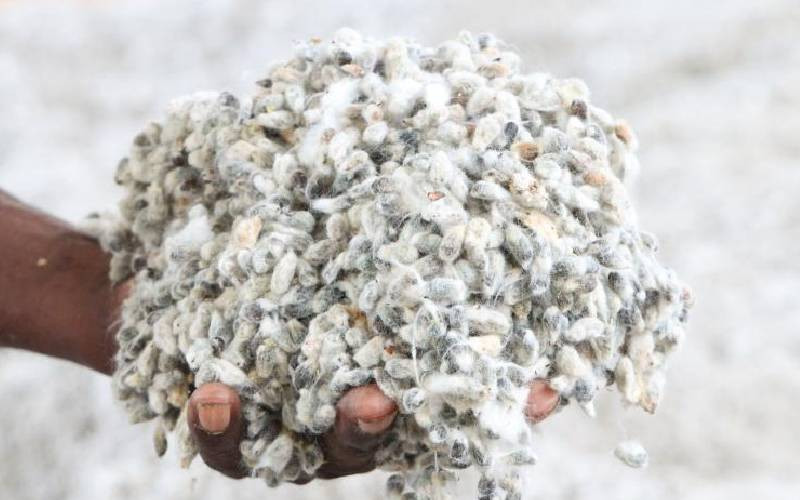In Vinda village at the far east of Kitui Central District in Kitui County, Itila Mbiti is the envy of the village because of his noble farming skills.
Mbiti, 68, has turned his farm green in an otherwise arid land through furrow irrigation where he digs trenches along seasonal rivers cutting across his farm to water his plants.
The farmer told Smart Harvest that he has been in fruit farming for the last 40 years and he cherishes every moment. His farm is characterised by green and healthy vegetation rare to find in arid and semi arid regions.
The farmer grows bananas, paw paws, oranges and mangoes. The fruits of his labour are manifest in his farm which boasts trees weighed down by their produce.
The healthy canopy of banana plants stretching far and wide in his farm would rival those in Kisii land. His farm also has about 300 orange trees and he has dedicated a 15-acre section for sugarcane farming.
“I get about Sh60,000 from sale of oranges alone per season. Most buyers come to the farm,” he says.
And from the sale of bananas, most of which is also sourced from the farm, Mbiti earns between Sh15,000and Sh20,000 per month.
Abhors laziness
The father of 19 children and husband of two says he abhors laziness and is up by 5am to check on his plants.
“Through farming I have been able to educate my children, at least to Form Four level. Those who did not go past Form Four cannot blame me, it was their wish, not lack of school fees,” says Mbiti. His first born is a military officer while several other children are teachers.
Mbiti who did not get formal education recalls how he made up his mind to go full blast into farming after “wasting six months in Mombasa” doing odd jobs.
“I was 25 when I went to Mombasa like many of my contemporaries. After staying there for a few months, I realised it was vanity. I came back home and fell in love with farming,” Mbiti says, adding that there is a lot of potential in farming.
His trick is to dig trenches to deviate sections of seasonal rivers cutting across his farm whereby the water flows freely to his plants, something he has done for the last 40 years, getting bumper harvests season after season.
His second wife Vivian acknowledges that her husband is a workaholic.
Dripping sweat
Stay informed. Subscribe to our newsletter
“Initially, I thought he would work himself to death but overtime I have become used to it. It is common to see him working in the farm late in the evening with sweat dripping all over his body,” she proudly says of her husband.
It has not been a rosy farming journey for the farmer though. He remembers an ugly incident three years ago when a farmhand he had hired was buried alive by a wall of sand near a river while flattening a section of the farm. Mbiti went to check on him only to find the wall had caved in.
“When I called his name and he did not respond, I panicked. Neighbours helped me retrieve the body while some wanted to lynch me,” recalls the farmer with a tinge of sadness in his voice.
The incident, however, did not blight his dreams. He compensated the family in the traditional Kamba ways.
Mbiti says his biggest headaches is the pathetic road network in the area which results into most of his produce going to waste before getting to the market. The surplus produce is transported using hired donkeys to Kalundu market in Kitui town, about 30 kilometers away.
The nightmarish journey from his farm to the market starts at 3.00 am if he has to make it to the market on time. Each donkey is hired at Sh200 to do the work.
However, during the rainy seasons, it becomes even difficult for the beasts of burden to navigate the alleys, forcing the farmer to sell his produce at throw-away prices.
He observes, “If the roads were in good condition, farmers like myself would be very rich. Due to this I tend to feel that most of my energy is going to waste.”
Mbiti appeals to the county government to repair the village roads so that he can reap maximum benefits of his labour.
 The Standard Group Plc is a
multi-media organization with investments in media platforms spanning newspaper
print operations, television, radio broadcasting, digital and online services. The
Standard Group is recognized as a leading multi-media house in Kenya with a key
influence in matters of national and international interest.
The Standard Group Plc is a
multi-media organization with investments in media platforms spanning newspaper
print operations, television, radio broadcasting, digital and online services. The
Standard Group is recognized as a leading multi-media house in Kenya with a key
influence in matters of national and international interest.
 The Standard Group Plc is a
multi-media organization with investments in media platforms spanning newspaper
print operations, television, radio broadcasting, digital and online services. The
Standard Group is recognized as a leading multi-media house in Kenya with a key
influence in matters of national and international interest.
The Standard Group Plc is a
multi-media organization with investments in media platforms spanning newspaper
print operations, television, radio broadcasting, digital and online services. The
Standard Group is recognized as a leading multi-media house in Kenya with a key
influence in matters of national and international interest.








